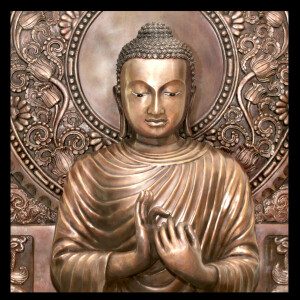
Reflections on Anatta ('Not-Self') - Ajahn Dhammasiha
 2020-04-25
2020-04-25
Download
Right click and do "save link as"
With questions about Anatta ('Not-Self') via both email and messages during the live podcast, Ajahn Dhammasiha shares some reflections on this subject.He points out that the Buddha did not teach Anattā to establish a doctrine or philosophy, but he intended it as a meditative tool for the explicit purpose of undermining and ulltimately totally uprooting all attachment, clinging and identification with all physical and mental phenomena.The delusion of Self stands and falls with the directly linked delusions of 'I', 'me', 'mine', 'ownership' & 'possessions'. Ownership can not be determined in an absolute, objective way, it is an attitude created and constructed in our mind. We 'regard' something as a possession; we 'assume' a Self. The Buddha now challenges us to investigate whether that assumption makes any sense, and whether it leads to an increase or to a decrease of our suffering.As all conditioned phenomena under direct observation reveal themselves to be impermanent, unreliable, unsure, and ultimately unsatisfactory, we have to admit that to claim possession of them and regard them as me, mine and Self is not appropriate or smart, and will in the end always enmesh us in suffering.Consequently, we train ourselves to see all feelings, perceptions, emotions, thoughts, intentions, bodies and material objects as well as consciousness of the 6 senses as: "N'etaṃ mama, n'eso 'ham-asmi, na meso attā ti" ("This is not mine, I am not this, this is not my Self")Cf. 'Anattalakkhaṇa Sutta'/'The Characteristic of Not-Self', Saṃyutta Nikāya 22.59, Connected Discourses of the Buddha page 901www.dhammagiri.org.auwww.castbox.fm/ch/2744970www.tinyletter.com/dhammagiriwww.vimeo.com/dhammatalks
view more
More Episodes
012345678910111213141516171819
Create your
podcast in
minutes
- Full-featured podcast site
- Unlimited storage and bandwidth
- Comprehensive podcast stats
- Distribute to Apple Podcasts, Spotify, and more
- Make money with your podcast
It is Free
- Privacy Policy
- Cookie Policy
- Terms of Use
- Consent Preferences
- Copyright © 2015-2024 Podbean.com






